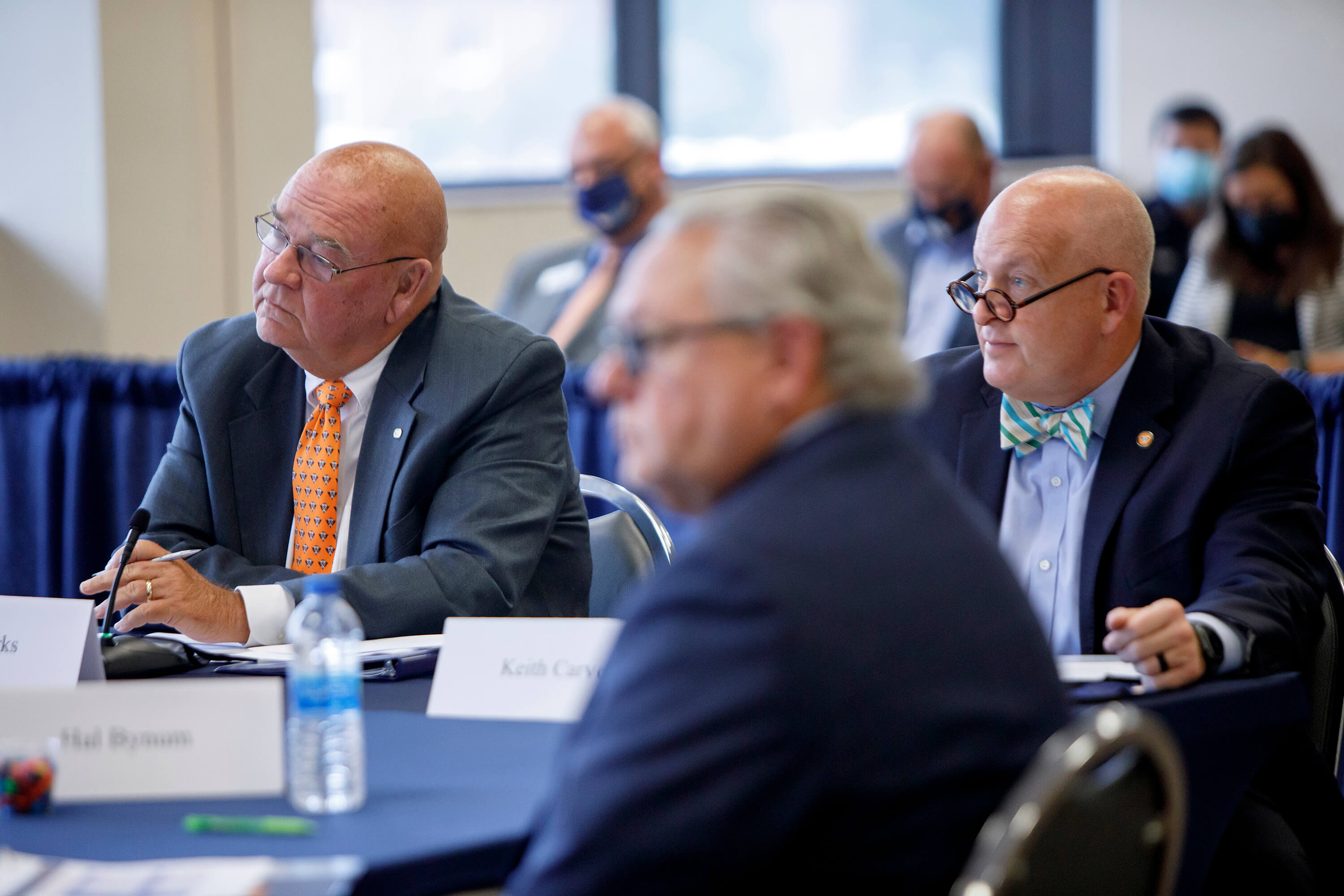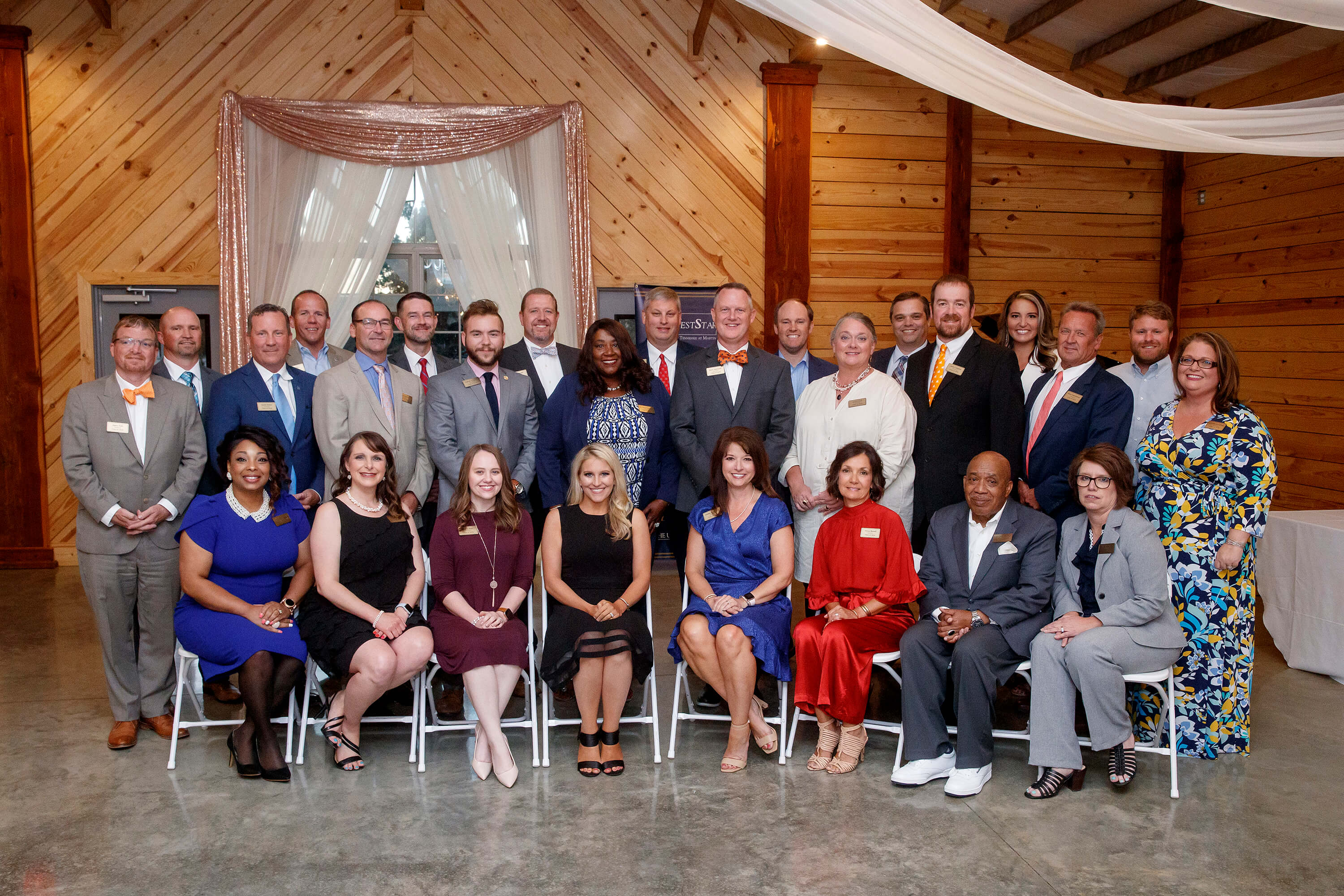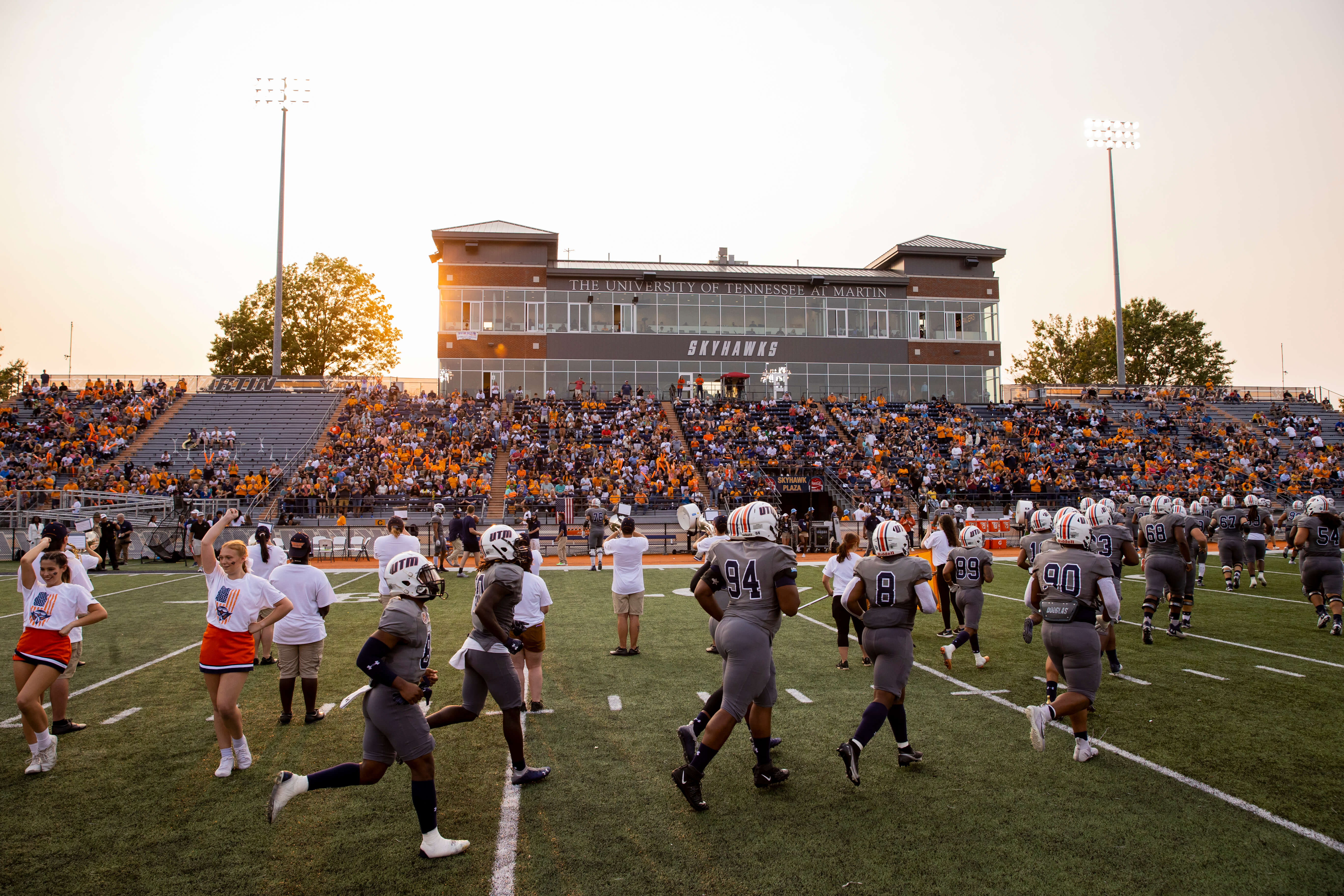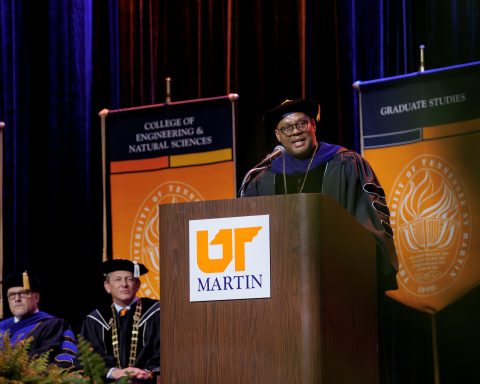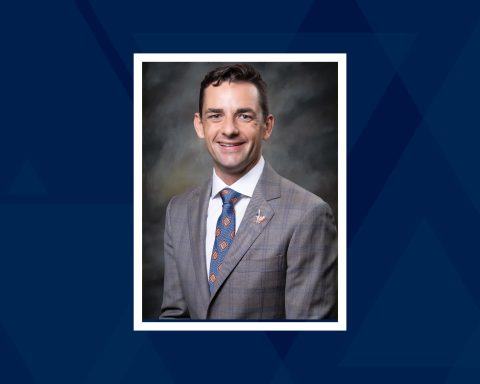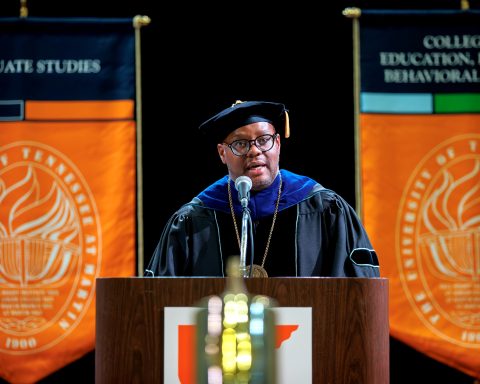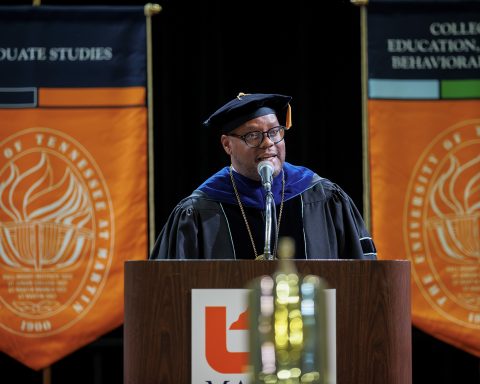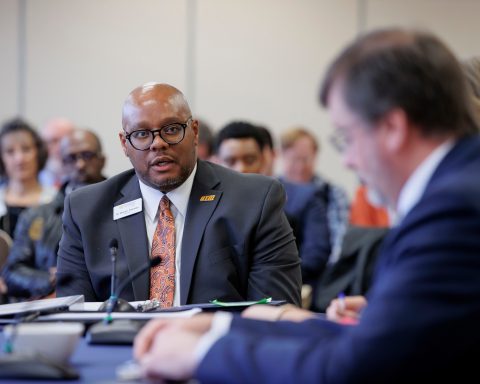Fall enrollment and new academic programs were highlighted as the University of Tennessee at Martin Advisory Board met Friday, Sept. 17, in the Boling University Center for its scheduled fall meeting. Art Sparks, of Union City, chairs the seven-member advisory board that includes Hal Bynum, Sharon; Dr. Philip Smartt, faculty member, Dresden; Kelsea Koonce, student member, Newbern; Monice Hagler, Memphis; Julia Wells, Jackson; and Johnny Woolfolk, Madison County. The meeting was the first official meeting for Koonce as she begins a one-year board term.
Sparks opened the meeting and introduced Dr. Keith Carver, UT Martin chancellor, who offered a brief COVID-19 report in which he noted a downward trend in both active virus cases and in total quarantines and isolations among university faculty, staff members and students. The previous meeting minutes were then approved, and an enrollment report and an overview of new academic programs were then presented by Dr. Philip Acree Cavalier, university provost and senior vice chancellor for academic affairs.
Cavalier reported strong application numbers for this fall and a positive response to the university’s intent-to-enroll survey, but more students “melted” or didn’t enroll as expected. He said that personal and family finances likely played a role in many decisions not to attend. “I think we all suspect that some of those students just felt like, at the last minute, they were not able to pay, that the financial picture … it wasn’t going to work this semester,” he told the board. First-time freshmen attending UT Martin this fall total 1,042 students, down about 6% from 2020 as reported by the university’s Office of Institutional Research.
Total fall enrollment reached just over 6,700 students, compared to 7,119 students who attended the university last fall, a decline that Cavalier said can be traced largely to multiple factors related to the pandemic. He said the university is moving forward proactively and will re-recruit many of the students who chose not to return this fall. A search is also underway to hire a new director this fall to coordinate retention efforts across the university.
Cavalier’s enrollment report transitioned to an overview of new academic programs that will address workforce needs and appeal to a wider range of students. Those programs include a Bachelor of Science in Veterinary Science and Technology, which is available this fall, and a Bachelor of Science in Cybersecurity that is set to be available in fall 2022. A new Master of Science in Criminal Justice will begin in spring 2022.
Cavalier also said that a bachelor’s degree in construction management and a master’s in music education are currently under faculty review as potential new degree programs. “We really believe that these (new academic programs) will help us as we try and counteract the effect of COVID,” he said.
Carver followed the academic reports by reviewing the status of major capital projects on the main campus, including completion of the Clement Hall renovation that will house undergraduate admissions and other student-centered services. He also previewed a possible Latimer Engineering and Science Building move-in sometime in April ahead of the first classes scheduled for fall 2022 in the facility.
“Our faculty being willing to come back and do face-to-face (teaching) – some folks are nervous about it, but they are absolutely making it work,” Carver said. “Our students are telling us great things about them.”
Even with the pandemic and other challenges, he noted major fundraising progress, recognized the work of the student affairs staff in keeping residence halls safe and cited record academic achievements for student athletes. He closed by thanking the university’s faculty for teaching under difficult and unpredictable circumstances. “Our faculty being willing to come back and do face-to-face (teaching) – some folks are nervous about it, but they are absolutely making it work,” Carver said. “Our students are telling us great things about them.”
Sparks closed the meeting by reminding the board of UT Martin graduate Brandon Rowland’s 2021 induction into the Tennessee Sports Hall of Fame. The Jackson, Tennessee, native is a double amputee and accomplished athlete who led the Jackson Generals wheelchair basketball team to two National Wheelchair Basketball Association titles in the early 2000s. Sparks is a member of the TSHF board of directors.
The advisory board meeting is archived at www.utm.edu/advisory. The next UT Martin Advisory Board meeting will be held Jan. 21.
###

